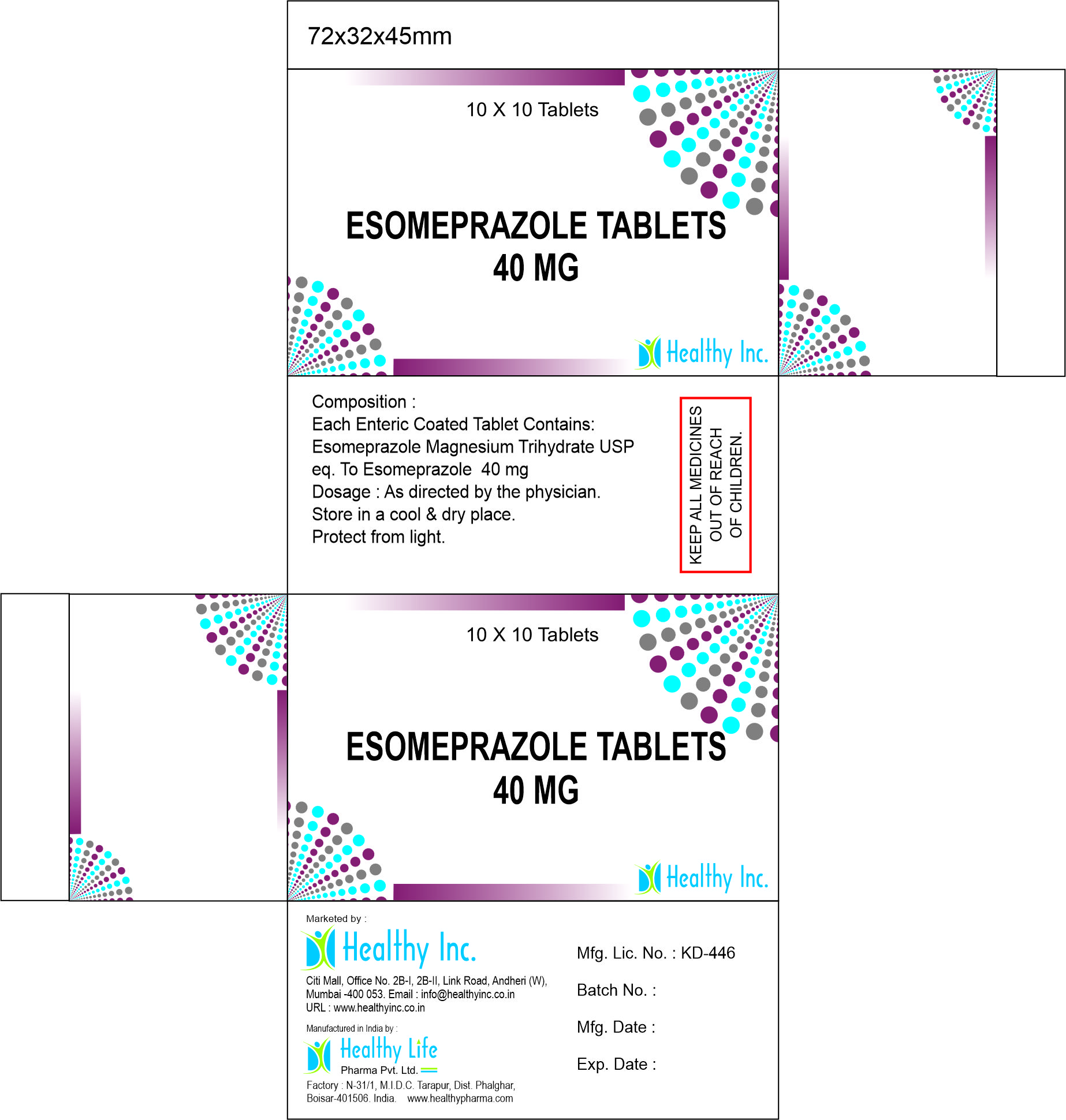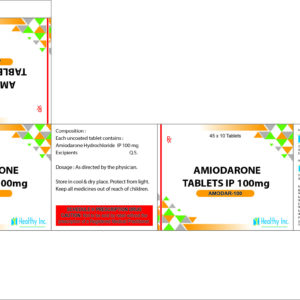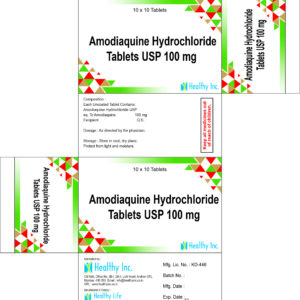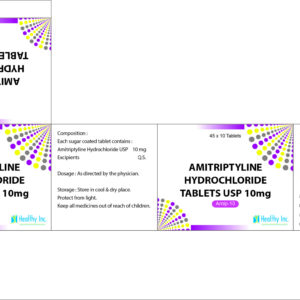Description
Product Description
Esomeprazole Tablet
Healthy Incorporation and Healthy life pharma Pvt ltd are one of the leading manufacturer, supplier, and exporter of Esomeprazole tablet 20 mg, Esomeprazole tablet 40mg, in India and serving the world with best quality pharmaceutical products.
Esomeprazole tablet Manufacturer
Healthy incorporation and Healthy life pharma Pvt ltd, is Mumbai Based WHO GMP certified manufacturer of injection, tablet, capsules, liquid, dry syrups, pre-filled syringes, ointments etc. with an extensive experience of over 45 years in manufacturing and have reach in many countries.
Uses of Esomeprazole tablet :
Esomeprazole tablets contains a drug called esomeprazole and it belongs to a class of medicines called ‘proton pump inhibitors. They work by cutting down the amount of acid that your stomach produces.
Gastroesophageal reflux disease known as GERD. It is a condition where acid from the stomach escapes into the gullet a tube which is joins your throat to your stomach and result into pain, inflammation, and heartburn.
If you have this problem, then your doctor may prescribe antibiotics to cure the infection and heal the ulcer.
Some stomach ulcers are caused by medicines known as NSAIDs (Non-Steroidal Anti-Inflammatory Drugs). This tablet helps to stop stomach ulcers or ulcers in the upper part of the intestine which are caused due to intake of NSAIDs.
When acid in stomach is increased due to the growth in the pancreas then it is known as Zollinger-Ellison syndrome.
Additional Information of Esomeprazole tablet :
Product Name Esomeprazole tablets
Composition & Active ingredients Esomeprazole
Potency 20 mg, 40mg
Therapeutic use Gastric problems/Stomach ulcers
Packing 10 Tablet (1 Box)
Dosage As per Doctor Prescription
Precautions of Esomeprazole tablet :
Please inform doctor your medical history, especially of liver disease, kidney disease, lupus an autoimmune disease, unusual weight loss, skin rash or any allergy, breathing problems.Consult your doctor if you are pregnant or planning to get pregnant or breast – feeding mother.
Side Effects of Esomeprazole tablet :
Most of the time there is no serious side effects. Some common side effects may arise after starting medication, as your body adjust to medicine. If any of your symptoms worsen then consult your doctor immediately
Headaches
Diarrhea
Stomach cramps
Dry mouth
Nausea
vomiting
Dizziness/Drowsiness
Tiredness
Swelling in ankles/feet
Spinning feeling
Insomnia
Numbness / tingling
For Detailed Product Information Contact Us at +91 7710003340, If you need Any assistance in selecting our Products that fits your requirements. If you’re looking for any product that you’re not seeing here, please contact our support team.
Esomeprazole tablet
Esomeprazole is a medication that belongs to a class of drugs known as proton pump inhibitors (PPIs). It is used to treat various conditions related to excess stomach acid production, including:
Gastroesophageal Reflux Disease (GERD): Esomeprazole is commonly prescribed to treat GERD, a condition where stomach acid flows back into the esophagus, causing symptoms like heartburn and irritation.
Peptic Ulcers: Esomeprazole can help heal and prevent ulcers in the stomach or duodenum by reducing stomach acid production, which allows the ulcers to heal.
Zollinger-Ellison Syndrome: This is a rare condition where the stomach produces too much acid. Esomeprazole can be used to manage excess acid production in such cases.
Esomeprazole tablets are typically taken orally and come in various strengths. The usual dosage and duration of treatment depend on the specific condition being treated, its severity, and the individual patient’s response to the medication. It’s essential to follow your healthcare provider’s instructions and not to change the dosage or stop taking the medication without consulting them.
Common side effects of esomeprazole may include headache, nausea, diarrhea, and abdominal pain. Like all medications, esomeprazole can have potential interactions with other drugs, so it’s important to inform your healthcare provider about all the medications and supplements you are taking to avoid potential complications.
If you have any questions or concerns about esomeprazole or its use, it’s best to consult with a healthcare professional who can provide you with personalized guidance and advice.
Esomeprazole is a medication that belongs to a class of drugs known as proton pump inhibitors (PPIs). It is used to treat various conditions related to excess stomach acid production. Esomeprazole works by reducing the production of stomach acid, thereby helping to relieve symptoms and heal conditions caused by excessive acid, such as gastroesophageal reflux disease (GERD), erosive esophagitis, and peptic ulcers.
Here are some key points about esomeprazole tablets:
Indications: Esomeprazole is commonly prescribed to treat conditions such as GERD, which causes acid reflux and heartburn. It can also be used to help heal and prevent peptic ulcers and to reduce the risk of gastric ulcers in individuals taking nonsteroidal anti-inflammatory drugs (NSAIDs).
How It Works: Esomeprazole inhibits the proton pump in the stomach, which is responsible for producing stomach acid. By reducing acid production, it helps relieve symptoms and allows the body to heal damaged tissues in the esophagus or stomach lining.
Dosage: The recommended dosage of esomeprazole can vary depending on the specific condition being treated and the severity of the symptoms. It is typically taken once daily before a meal. Your healthcare provider will determine the appropriate dosage for your condition.
Duration of Use: The duration of esomeprazole treatment can vary. It is often prescribed for a short-term period to relieve symptoms, but in some cases, it may be used long-term to prevent the recurrence of symptoms or complications.
Side Effects: Common side effects may include headache, nausea, diarrhea, abdominal pain, and flatulence. Serious side effects are rare but can include kidney problems, low magnesium levels, and an increased risk of bone fractures with long-term use. It’s important to discuss potential side effects with your healthcare provider.
Interactions: Esomeprazole may interact with other medications, so it’s important to inform your healthcare provider about all the drugs you are taking. It can affect the absorption of some medications and may require adjustments in their dosages.
Precautions: It’s essential to follow your healthcare provider’s instructions and take esomeprazole as directed. If you have any allergies or medical conditions, be sure to inform your healthcare provider before starting this medication. Long-term use of PPIs should be monitored closely by a healthcare professional.
Over-the-Counter Availability: In some countries, you can find over-the-counter (OTC) versions of esomeprazole for short-term use in the treatment of heartburn. However, for more severe or chronic conditions, a prescription from a healthcare provider is typically required.
Always follow your healthcare provider’s recommendations and the instructions provided with the medication. If you have any questions or concerns about esomeprazole or its use, consult your healthcare professional for guidance.
Esomeprazole is a medication that belongs to a class of drugs known as proton pump inhibitors (PPIs). It is primarily used to treat conditions related to excess stomach acid production. Some common brand names for esomeprazole include Nexium, Nexium 24HR, and others. Here are some key points about esomeprazole tablets:
Purpose: Esomeprazole is prescribed to reduce the production of stomach acid. It is commonly used for conditions such as gastroesophageal reflux disease (GERD), peptic ulcers, Zollinger-Ellison syndrome, and to prevent damage to the esophagus caused by stomach acid.
Mechanism of Action: It works by inhibiting the proton pump in the stomach lining, which is responsible for acid production. By reducing acid secretion, esomeprazole can help relieve symptoms and promote healing in conditions where excess stomach acid is problematic.
Dosage: The dosage of esomeprazole can vary depending on the specific condition being treated. It is typically taken once daily before a meal. The dosage and duration of treatment should be determined by a healthcare professional.
Side Effects: Common side effects may include headache, nausea, diarrhea, and abdominal pain. Serious side effects are rare but can include allergic reactions, kidney problems, and bone fractures if used long-term.
Interactions: Esomeprazole can interact with other medications, so it’s essential to inform your healthcare provider about all the drugs you are taking.
Precautions: You should not take esomeprazole if you are allergic to it or similar medications, have severe liver disease, or are taking certain medications that interact negatively with PPIs. Long-term use should be under medical supervision, and abrupt discontinuation is not advisable.
Over-the-Counter: In some countries, you can purchase esomeprazole over-the-counter (OTC) for short-term use to relieve heartburn and acid indigestion. However, if you have persistent or severe symptoms, it’s essential to consult a healthcare professional.
Please note that the information provided here is for general knowledge, and you should always follow your healthcare provider’s guidance and the specific instructions on the medication label when taking esomeprazole or any other prescription or OTC medication.
Esomeprazole is a medication that belongs to a class of drugs known as proton pump inhibitors (PPIs). It is used to reduce the production of stomach acid and is primarily prescribed to treat conditions related to excessive stomach acid, such as:
Gastroesophageal Reflux Disease (GERD): Esomeprazole is often prescribed to relieve symptoms of GERD, a condition where stomach acid flows back into the esophagus, causing heartburn and irritation.
Peptic Ulcers: Esomeprazole can be part of the treatment regimen for peptic ulcers, which are open sores that develop on the lining of the stomach or the upper part of the small intestine. It helps to promote healing and prevent their recurrence.
Zollinger-Ellison Syndrome: This rare condition results in excessive stomach acid production. Esomeprazole can be used to control acid production in individuals with this syndrome.
Esomeprazole tablets are available in various strengths and can be taken orally. The medication works by blocking the action of the proton pump in the stomach lining, which reduces the production of acid.
It’s essential to take esomeprazole as prescribed by your healthcare provider and to follow their instructions regarding dosage and duration of treatment. This medication may have some potential side effects and interactions with other drugs, so it’s crucial to discuss any concerns with your healthcare provider before starting or continuing this treatment.
Esomeprazole is a medication that belongs to a class of drugs known as proton pump inhibitors (PPIs). It is used to treat conditions related to excess stomach acid production, such as:
Gastroesophageal Reflux Disease (GERD): Esomeprazole is often prescribed to relieve symptoms of GERD, which include heartburn, acid regurgitation, and the healing of erosive esophagitis (damage to the lining of the esophagus caused by stomach acid).
Peptic Ulcers: Esomeprazole can be part of the treatment plan for peptic ulcers, including both duodenal ulcers and stomach ulcers. It helps to heal these ulcers and prevent their recurrence.
Zollinger-Ellison Syndrome: This rare condition causes excessive stomach acid production. Esomeprazole can be used to manage the excess acid production in such cases.
Esomeprazole works by reducing the production of stomach acid by inhibiting the proton pumps in the stomach lining. It is available in various forms, including tablets, capsules, and as an oral suspension.
Please note that esomeprazole should be used under the supervision and prescription of a healthcare provider, as its use may be associated with certain side effects and should be tailored to individual patient needs. If you have questions about esomeprazole or its use, it’s important to consult with a healthcare professional for guidance and recommendations specific to your situation.
Esomeprazole is a medication that belongs to a class of drugs known as proton pump inhibitors (PPIs). It is used to treat a variety of conditions related to excess stomach acid production. Esomeprazole works by reducing the amount of acid produced by the stomach.
Here are some common uses of esomeprazole tablets:
Gastroesophageal Reflux Disease (GERD): Esomeprazole is often prescribed to individuals with GERD to relieve symptoms such as heartburn, acid regurgitation, and difficulty swallowing. It helps to heal and prevent damage to the esophagus caused by stomach acid.
Peptic Ulcers: Esomeprazole can be used in the treatment of peptic ulcers, which are sores that form on the lining of the stomach or small intestine. By reducing stomach acid production, esomeprazole aids in the healing process and can help prevent ulcers from returning.
Zollinger-Ellison Syndrome: This is a rare condition where the stomach produces excess acid. Esomeprazole can be used to manage the symptoms and reduce acid production in these cases.
Esomeprazole tablets are typically taken orally and are available in various strengths. The dosing and duration of treatment can vary depending on the specific condition being treated and should be determined by a healthcare professional. It’s important to follow your healthcare provider’s instructions and not exceed the prescribed dose.
As with any medication, esomeprazole may have potential side effects and interactions with other drugs. It’s essential to discuss your medical history and any other medications you are taking with your healthcare provider to ensure it’s a suitable treatment option for you.
Please note that this information is provided for general knowledge, and you should always consult with a healthcare professional for specific advice and recommendations regarding the use of esomeprazole or any other medication.
Note: Healthy Incorporation and Healthy life pharma Pvt ltd tries to ensure that all information, whether in relation to the products, services, offerings provided as part of this website is correct at the time of inclusion on the website, Unauthorized use of any materials contained on this website may violate copyright laws, trademark laws, the laws of privacy and publicity, certain communications statutes and regulations and other applicable laws and regulations. All copyright and other intellectual property rights in this material are owned by Healthy Incorporation and Healthy life pharma Pvt ltd. Please connect with us to discuss precise product specifications and requirements and obtain advice on which products are suitable for your requirement or you can write to us
Esomeprazole Tablets , एसोमेप्राज़ोल गोलियाँ , comprimidos de esomeprazol , Comprimés d’ésoméprazole , قرص إيزوميبرازول ملجم ملجم , 片埃索美拉唑錠 毫克 毫克 , comprimidos de esomeprazol , Эзомепразол Таблетки , エソメプラゾール錠 , suppliers India, Exporters,Wholesalers India, Distributors India, Generic Supplier,who gmp certified manufacturer








